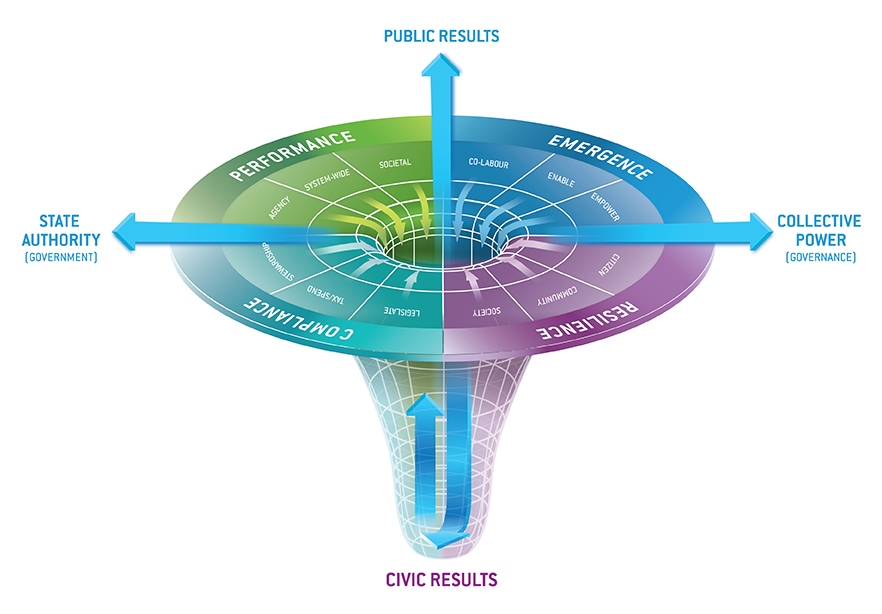The New Synthesis (NS) proposes a shift of considerable magnitude from a closed system of government to a dynamic approach to governance. NS draws from complexity theory, ecology, adaptive system thinking to encourage exploration and invention of viable solutions. The solution to complex issues and intractable problems does not reside in the parts but in how multiple elements interact dynamically with one another to generate a “new” whole.
At the heart of the NS Framework is the notion that governing and serving the public interest is a collective enterprise that involves governments, citizens and all actors in society.
Governing involves a delicate search for balance where the state authority is used to leverage the collective capacity of society to achieve results that we experience collectively.
Inventing solutions to complex issues requires:
- To reconceptualise the interrelationships between the natural, economic, and social systems
- To combine and manage in new ways the interfaces between public, private, and civic spheres of life in society
- To articulate in contemporary terms the balance needed between the pursuit of individual interests in ways that advance the overall interest of society
As in the past, the State must be able to govern (compliance) and the public apparatus must be able to get things done (performance). But, more than ever, government must nurture the capacity to invent solutions (emergence) and to build the adaptive capacity and the resilience of society (resilience).

To learn more about the New Synthesis Framework see NS fieldbook






